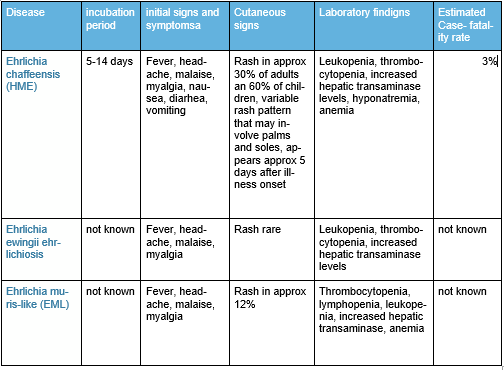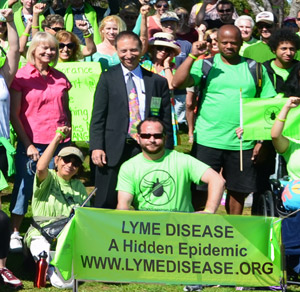Ehrlichiosis — the Tick-Borne Disease No One Has Heard Of While some cases of ehrlichiosis are mild, the disease can be severe or fatal if not treated correctly, even in previously healthy people.
Other Modes of Transmission
Ehrlichia chaffeensis has been shown to survive for over a week in refrigerated blood. Therefore these bacteria may present a risk for transmission through blood transfusion and organ donation. It has also been suggested that ehrlichiosis can be transmitted from mother to child, and through direct contact with slaughtered deer. 14,15
Summary of Ehrlichiosis

References:
- CDC | Emerging Tickborne Diseases | Public Health Grand Rounds, March 2017
- U.S. Public’s Experience with Ticks and Tick-Borne Diseases: Results from National HealthStyles Surveys
- Relative Risk for Ehrlichiosis and Lyme Disease in an Area Where Vectors for Both Are Sympatric, New Jersey, USA
- CDC MMWR | Diagnosis and Management of Tickborne Rickettsial Diseases: Rocky Mountain Spotted Fever and Other Spotted Fever Group Rickettsioses, Ehrlichioses, and Anaplasmosis—United States, May 2016
- Human Infection with Ehrlichia Canis, a Leukocytic Rickettsia, 1987
- Ehrlichia Chaffeensis: A Prototypical Emerging Pathogen, 2003
- Tick-Borne Ehrlichiosis Infection in Human Beings, 2008
- Emergence of a New Pathogenic Ehrlichia Species, Wisconsin and Minnesota, 2009
- Ehrlichia’s Molecular Tricks to Manipulate Their Host Cells, 2015
- CDC: Ehlichiosis
- Natural history of Ehrlichia Caffeensis: Vertebrate Hosts and Tick Vectors from the United States and Evidence for Endemic Transmission in Other Countries, 2010
- Survey of Ixodes Pacificus Ticks in California Reveals a Diversity of Microorganisms and a Novel and Widespread Anaplasmataceae Species
- Species Composition and Temporal Distribution of Adult Ixodid Ticks and Prevalence of Borrelia Burgdorferi Sensu Lato and Rickettsia Species in Orange County, California
- Perinatal Transmission of the Agent of Human Granulocytic Ehrlichiosis
- Exposure to Deer Blood May be a Cause of Human Granulocytic Ehrlichiosis





























If a person had bellspulsy long before the tick bite but suffered trigyminal neuralgia after the tick bite is this also one of the symptoms? It was on the same side of the face.
We suggest you consult with a Lyme-literate practitioner. Here is a link to our physician directory: https://www.lymedisease.org/find-lyme-literate-doctors/